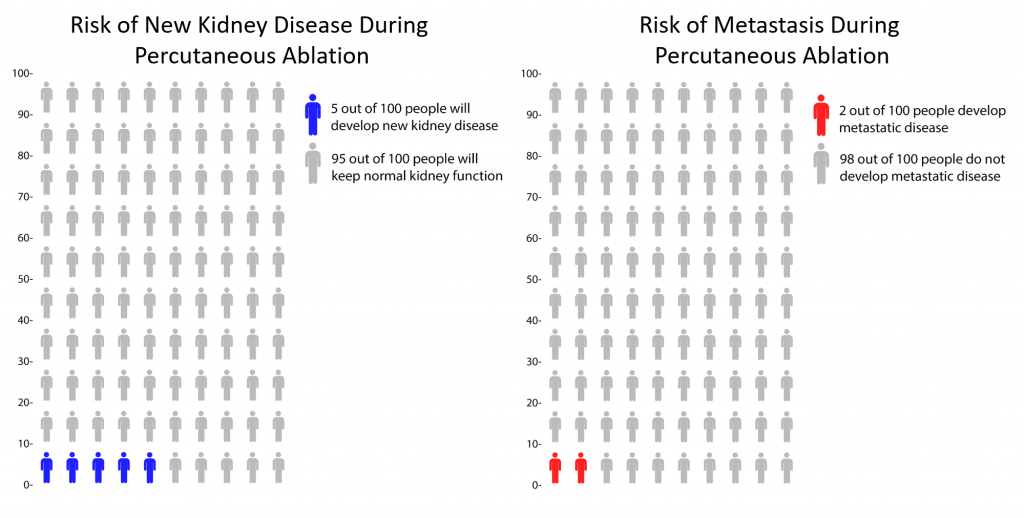Percutaneous Ablation
Percutaneous ablation is a procedure that destroys tumor tissue using a very hot or very cold needle. It is less invasive than surgery.
Percutaneous Ablation
What does Percutaneous Ablation Mean?
Percutaneous ablation is a less invasive treatment option than surgery but still treats the cancer. Percutaneous ablation means that a doctor will place one or more special needles (called ablation probes) into the cancer through the skin, using imaging to guide the needle. This typically can be done with mild to moderate sedation, where a breathing tube is not necessary. The ablation probes either use very hot or cold temperatures in a controlled fashion to either burn or freeze the tumor. You cannot feel the hot or cold temperature during the treatment. The treated area includes the mass plus a small rim of normal tissue around the mass (the margin).
What Could Happen if I Undergo Percutaneous Ablation?
- For up to 10 out of 100 patients, some cancer could remain alive after the procedure and the treatment will need to be repeated to completely kill it.
- For about 7 out of 100 patients, cancer could come back in the kidney after it is thought to be completely treated (also called recurrence).
- For 2 out of 100 patients, surgery could be necessary even after repeated treatment because the cancer comes back and appears to grow rapidly.
- The vast majority – 98 out of 100 patients (98%) do not develop metastatic disease after ablation.

